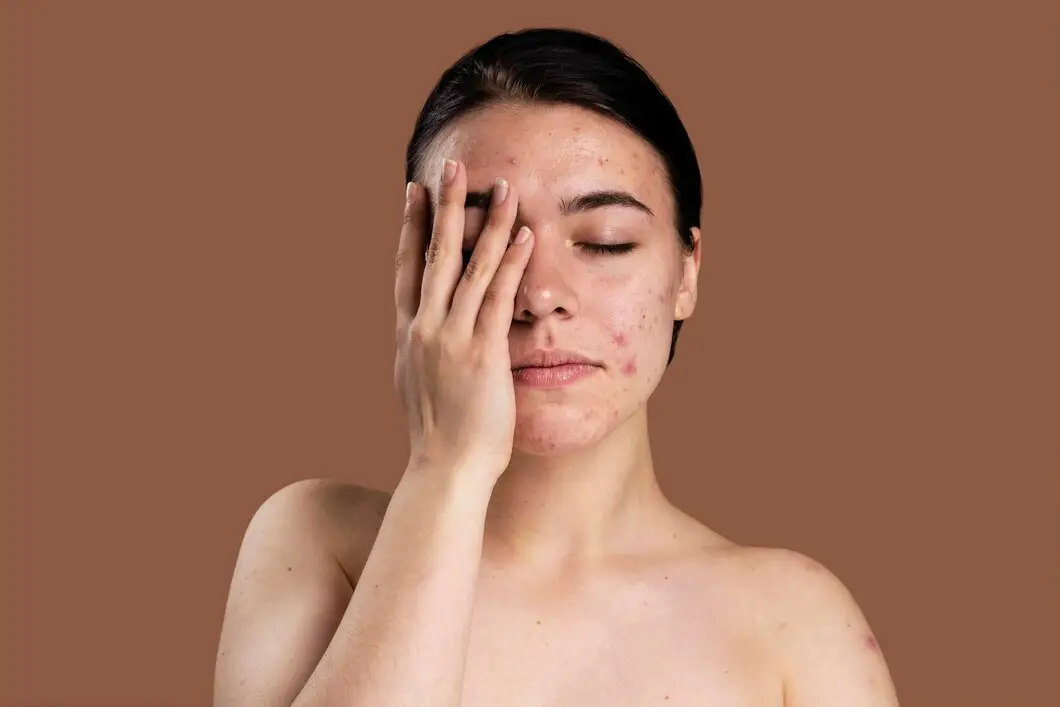10 Foods That Cause Acne on the Face and Should Be Limited
Author: Nulook ExpertiseReview by: -Have you ever felt frustrated with the acne on your face that not only affects your appearance but can also lower your self-confidence? One of the causes of acne on the face that you need to know about is the food you eat. Certain foods can trigger acne, especially when consumed in excess.
In this article, we will discuss some foods that cause acne on the face and should be limited, as well as provide solutions to avoid their harmful effects on the skin. With the right knowledge about acne-causing foods, you can keep your skin healthy and acne-free.
10 Foods That Trigger Acne on the Face
Acne on the face often appears unexpectedly and can be very disruptive to your appearance, as well as lower your self-esteem. One of the causes of acne that you need to be aware of is the food you eat. Certain foods can increase the production of excess oil on the face and clog pores, which eventually leads to acne. Here are some foods that can trigger acne on the face:
1. Dairy Products
Dairy products such as milk, cheese, and yogurt are known to trigger acne in some people. This is due to the hormones found in milk, which can stimulate the sebaceous glands to produce more sebum. As a result, pores can get clogged, leading to inflammation that causes acne. If you notice acne after consuming dairy products, try reducing your intake or opting for non-dairy alternatives.
2. High Sugar Intake
Foods or drinks that are high in sugar, such as soda, candy, or sweet cakes, can increase insulin levels in the body. High insulin levels can stimulate the sebaceous glands in the skin to produce more sebum, which can clog pores and trigger acne. To maintain healthy skin, try reducing your intake of sweet foods and choosing foods with a lower glycemic index.
Read Also: Food Restrictions After Botox: Expert Tips & Guidelines
3. High-Carbohydrate Foods
Foods high in carbohydrates, such as white bread, pasta, and white rice, can also increase blood sugar levels. A spike in blood sugar can cause inflammation in the body and increase oil production in the skin. These changes can make the skin more susceptible to acne. Instead, opt for complex carbohydrates like whole wheat and brown rice, which have a less significant impact on blood sugar.
4. Chocolate
Chocolate, especially milk chocolate, can be one of the foods that cause acne on the face. While some studies suggest that chocolate does not always directly cause acne, some people report an increase in acne after consuming chocolate. Chocolate contains sugar and fat, which can trigger inflammation in the body, contributing to acne formation. Research published in the Journal of the American Academy of Dermatology shows that consuming chocolate can increase acne flare-ups in some people, particularly those sensitive to sugar and fat content in milk chocolate. Some studies also link increased insulin levels after consuming chocolate to an increase in sebum production in the skin, which can lead to clogged pores (Stampler, M., et al., 2017, Journal of the American Academy of Dermatology).
If you notice frequent acne after consuming chocolate, try reducing your intake to see if there is an improvement in your skin.
5. Fast Food
Fast food like burgers, french fries, and pizza often contains high levels of saturated fats, salt, and added chemicals. Long-term consumption of such foods can trigger an increase in hormones associated with excess oil production, which risks clogging pores and causing acne. Reducing fast food intake can help keep your skin clean and healthy.
6. Whey Protein
Whey protein, commonly found in sports supplements, can be one of the causes of acne. The lactoserum in whey can increase insulin levels and growth factors that stimulate sebum production. For some people, consuming whey protein can worsen acne. If you experience acne after consuming whey, try switching to other sources of protein that are gentler on your skin.
Read Also: 7 Amazing Benefits of Anti-Aging Treatments That Can Boost Your Confidence!
7. Alcoholic Beverages
\Alcoholic drinks, such as beer, wine, and spirits, can cause dehydration of the skin and affect hormonal balance. When the body is dehydrated, the skin produces more oil to compensate, which can eventually lead to clogged pores. If you enjoy drinking alcohol, try limiting your intake to keep your skin well-hydrated and prevent acne.
8. Foods Containing Omega-6
Foods high in omega-6, such as corn oil, soybean oil, and margarine, can cause inflammation in the body. While omega-6 is essential for the body, consuming it in excess without balancing it with omega-3 can worsen inflammation and contribute to the development of acne. It's best to increase your intake of omega-3-rich foods like salmon and walnuts to balance the body's fat intake.
9. Processed Foods with Preservatives
Processed foods that contain many preservatives and synthetic dyes can affect skin health. These chemicals can cause inflammatory reactions in the body, leading to skin inflammation and the appearance of acne. To keep your skin healthy, it's better to choose fresh foods with minimal processing.
10. Trans Fat Foods
Foods containing trans fats, such as chips, cookies, and other packaged snacks, contain trans fats that can increase bad cholesterol levels in the body. Trans fats can also affect hormonal balance and increase inflammation, potentially causing acne. Avoid trans fat foods and choose healthier snacks like nuts or fresh fruit as alternatives.
How to Effectively Address Acne on the Face
After learning about some foods that trigger acne, the next step is finding effective ways to address it. Here are some solutions you can try:
1. Cleanse Your Face Regularly
Proper face cleansing is the first step to dealing with acne. Perform double cleansing with a gentle cleanser in the morning and an oil-based cleanser at night to effectively remove dirt and makeup residue.
2. Use the Right Skincare Products
Make sure you're using skincare products that contain effective active ingredients for acne, such as salicylic acid, niacinamide, or benzoyl peroxide. These ingredients help open clogged pores, reduce inflammation, and brighten the skin.
Read Also: How to Lose Weight Quickly with 8 Steps
3. Change Your Lifestyle and Diet
Consuming nutrient-dense foods like fruits, vegetables, and water can help maintain healthy skin. Avoid foods high in sugar and fat, and ensure you get enough sleep and exercise to maintain hormonal balance.
4. Consult a Dermatologist
If your acne is severe or doesn’t improve, consult a dermatologist or professional beautician. They can provide medical treatments or advice on more effective medications.
5. Manage Stress Well
Stress management is crucial in dealing with acne. Try activities that help reduce stress, such as yoga, meditation, or taking walks in nature.
Nu Crystal Clear Facial Nulook: Clear Skin Solution
If you want clearer skin and to be acne-free, besides managing your food intake, you can also try the Nu Crystal Clear Facial treatment at Nulook. Using advanced technology and premium products, this treatment deeply cleanses the skin, tackles acne, and provides brighter, oil-free skin.
Don't wait any longer! Visit Nulook in Bali and schedule a consultation with our expert team today. Click here to make an appointment!
References:
- Mayo Clinic - Acne Causes and Symptoms
- Penn Medicine - Acne Treatments
- Cleveland Clinic - Acne


